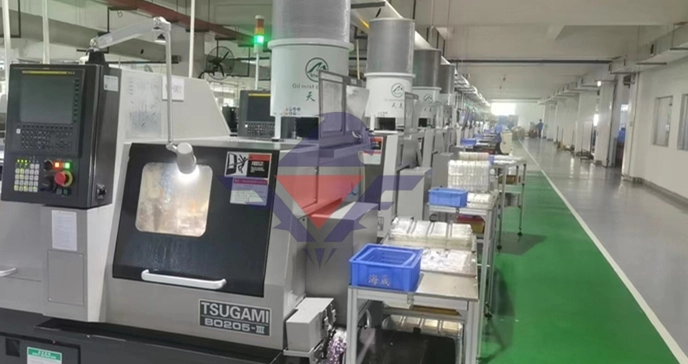Swiss Machine Shop: Precision Engineering at Its Finest

,文章长度约1000字,要符合SEO优化要求,关键词密度适中,文章结构清晰,内容原创。
# Swiss Machine Shop: Precision Engineering at Its Finest
When it comes to precision engineering, few industries can match the exacting standards of a Swiss machine shop. Renowned for their unparalleled accuracy and attention to detail, these workshops have become synonymous with high-quality machining solutions across various sectors.
## The Legacy of Swiss Machining
The origins of Swiss machining date back to the late 19th century when watchmakers in Switzerland needed a more precise method for creating tiny, intricate components. This necessity gave birth to what we now know as Swiss-style machining – a process that has revolutionized precision manufacturing worldwide.
Unlike conventional machining techniques, Swiss machining offers several distinct advantages:
– Exceptional precision with tolerances as tight as ±0.0001 inches
– Ability to machine complex geometries in a single setup
– Superior surface finishes that often eliminate secondary operations
– Reduced material waste through optimized cutting processes
## Core Capabilities of a Modern Swiss Machine Shop
Today’s leading Swiss machine shops have evolved far beyond their watchmaking roots, offering comprehensive solutions for industries ranging from aerospace to medical devices. The hallmark capabilities include:
### 1. Swiss Turning and Milling
The heart of any Swiss machine shop lies in its turning centers. These sophisticated machines combine turning and milling operations to produce complex parts with incredible accuracy. The unique sliding headstock design allows for machining close to the guide bushing, minimizing deflection and vibration.
### 2. Multi-Axis Machining
Advanced Swiss shops now operate 5-axis and even 7-axis machines, enabling them to manufacture parts with complex geometries that would be impossible with conventional equipment. This capability is particularly valuable for:
– Aerospace components
– Medical implants and instruments
– Optical devices
– Micro-electronics
### 3. High-Volume Production
While Swiss machining is often associated with precision, modern shops have perfected high-volume production without sacrificing quality. Automated loading systems, robotic part handling, and sophisticated quality control measures allow for efficient mass production of precision components.
## Industries Served by Swiss Machine Shops
The versatility of Swiss machining makes it indispensable across multiple sectors:
### Medical Device Manufacturing
The medical industry relies heavily on Swiss machining for:
– Surgical instruments
– Orthopedic implants
– Dental components
– Micro-precision medical devices
### Aerospace and Defense
Critical aerospace components demand the precision and reliability that only Swiss machining can provide:
Keyword: Swiss Machine Shop
– Fuel system components
– Actuator parts
– Guidance system elements
– Sensor housings
### Electronics and Telecommunications
As devices become smaller and more complex, Swiss machining enables the production of:
– Connector pins
– RF components
– Miniature housings
– Precision shafts
## Choosing the Right Swiss Machine Shop
With numerous options available, selecting the right Swiss machine shop requires careful consideration of several factors:
### Technical Capabilities
Evaluate whether the shop has:
– Appropriate machine sizes for your parts
– Necessary certifications (ISO, AS9100, etc.)
– Experience with your specific materials
– Capacity for your required volumes
### Quality Assurance
A reputable shop should have:
– Comprehensive inspection equipment
– Documented quality processes
– Statistical process control methods
– Traceability systems
### Value-Added Services
Look for shops offering:
– Design for manufacturability input
– Secondary operations (plating, heat treating, etc.)
– Assembly and testing capabilities
– Inventory management solutions
## The Future of Swiss Machining
As technology advances, Swiss machine shops continue to push the boundaries of what’s possible:
### Smart Manufacturing Integration
Leading shops are adopting:
– IoT-enabled machines for real-time monitoring
– Predictive maintenance systems
– Automated quality inspection
– Digital twin technology
### Advanced Materials Processing
Modern Swiss shops are mastering:
– High-temperature alloys
– Exotic metals
– Advanced composites
– Medical-grade plastics
### Micro-Mach

